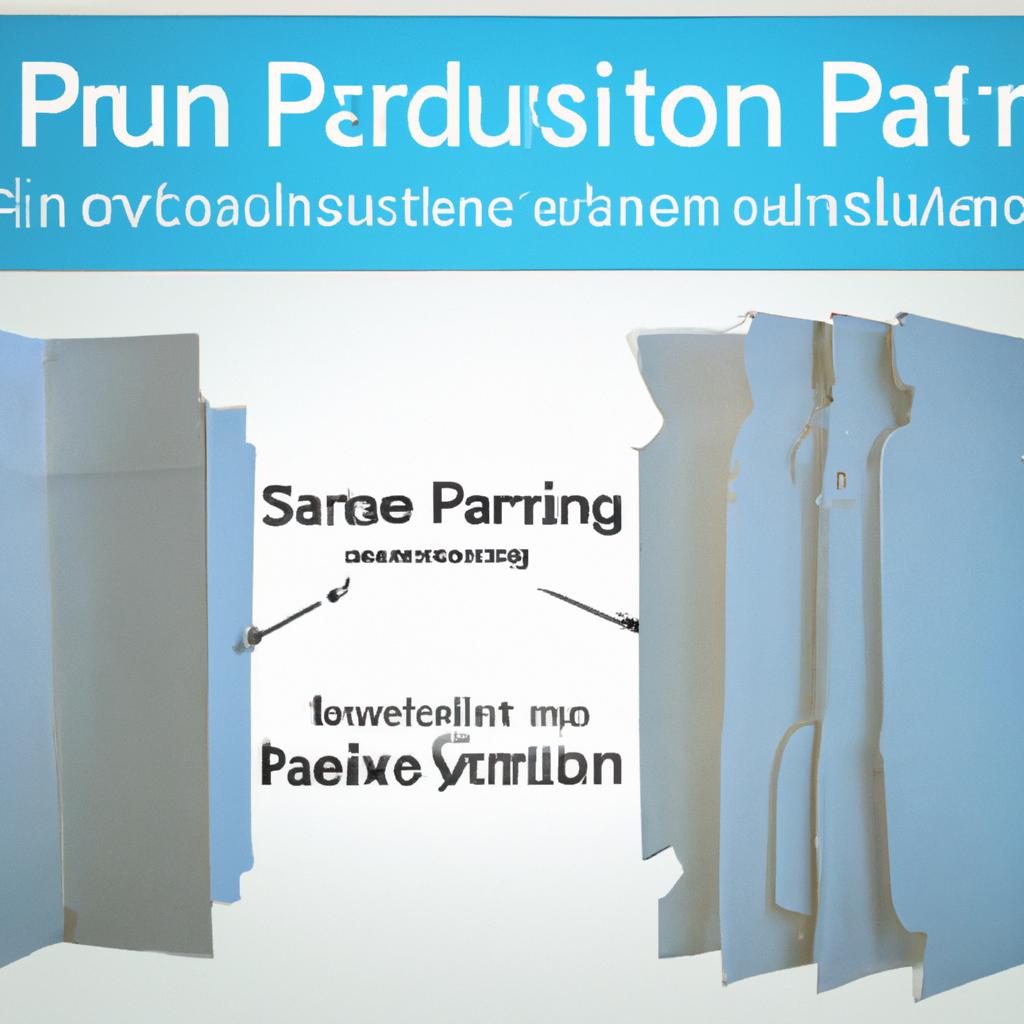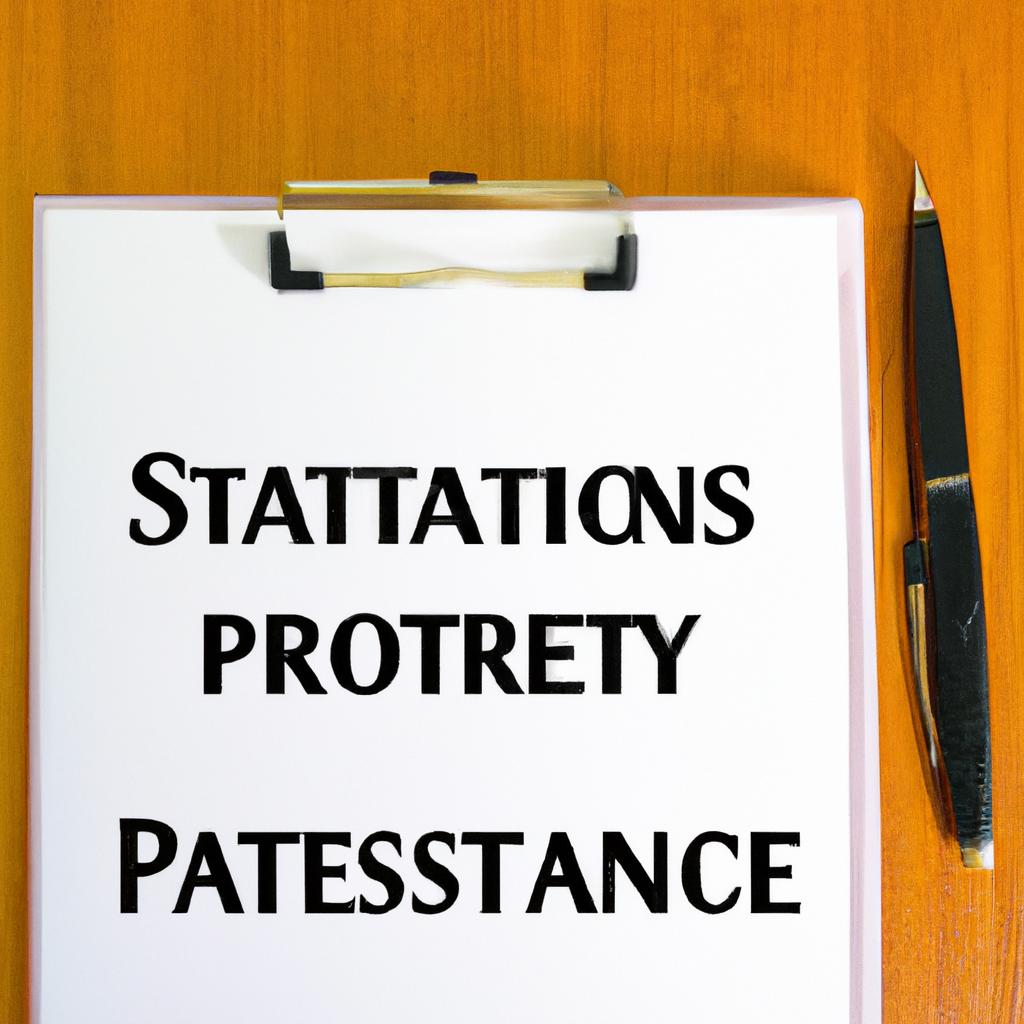In the intricate world of real estate law, the term “suit to partition” holds a significant weight, carrying with it the potential for both conflict and resolution. As experienced practitioners at the forefront of the legal landscape, we at Morgan Legal Group, based in the bustling metropolis of New York City, are well-versed in navigating the complexities of estate planning, probate, elder law, Wills, and trusts. In this article, we delve into the nuances of the suit to partition, shedding light on its intricacies and implications for all parties involved.
Understanding the Suit to Partition Process
When it comes to , it is essential to grasp the intricacies involved in dividing real property among co-owners. This legal action is often necessary when multiple individuals own a property together, but cannot agree on how to use or divide it. The suit to partition provides a legal remedy for resolving disputes and ensuring a fair distribution of assets.
**Key Steps in the Suit to Partition Process:**
- File a Petition in Court
- Notify All Interested Parties
- Appoint a Partition Referee
- Conduct Appraisals and Assessments
Benefits of Suit to Partition:
- Allows for Fair Distribution of Property
- Resolves Disputes Amicably
- Protects Co-Owners’ Rights

Navigating Complex Legal Procedures in Suit to Partition Cases
When it comes to , it is crucial to have a clear understanding of the process and the laws that govern it. Suit to partition cases involve co-owners of real property requesting a court order to divide the property or force a sale in order to receive their share of the proceeds. This can be a contentious and emotional process, requiring careful navigation and expertise.
At Morgan Legal Group, we specialize in handling suit to partition cases with precision and care. Our team of experienced attorneys is well-versed in the complex legal procedures involved in these cases, from filing the initial petition to representing our clients in court. We work diligently to protect our clients’ interests and ensure a fair resolution to the dispute. Trust us to guide you through the intricate legal landscape of suit to partition cases with expertise and dedication.

Strategies for a Successful Outcome in Suit to Partition Proceedings
When navigating suit to partition proceedings, it is crucial to employ effective strategies to ensure a successful outcome. One key strategy is to thoroughly review and understand the applicable laws and regulations governing partition actions in your jurisdiction. By having a comprehensive understanding of the legal framework, you can better advocate for your client’s rights and interests.
Additionally, it is essential to carefully assess the specific circumstances of the case, including the nature of the property in question, the interests of the co-owners, and any potential disputes or conflicts that may arise. Developing a clear and persuasive argument that addresses these factors can significantly strengthen your position in the suit to partition proceedings. By strategically presenting your case and advocating for your client’s goals, you can increase the likelihood of achieving a favorable resolution in the partition action.

Expert Guidance from Morgan Legal Group in Suit to Partition Matters
When it comes to matters concerning suit to partition, it is essential to seek expert guidance to navigate through the complexities of the legal process. At Morgan Legal Group, our team of experienced attorneys specializes in handling partition suits with precision and professionalism. We understand the intricacies involved in dividing co-owned property and work tirelessly to ensure our clients’ interests are protected.
With our wealth of experience and expertise in partition matters, we provide strategic advice and representation to individuals seeking to enforce their right to partition property. Our attorneys are well-versed in the legal framework surrounding partition suits and are committed to securing the best possible outcome for our clients. Trust Morgan Legal Group to guide you through the partition process and advocate for your rights with diligence and dedication.
Q&A
Q: What is a suit to partition?
A: A suit to partition is a legal action taken to divide property between co-owners.
Q: When would someone bring a suit to partition?
A: A suit to partition may be brought when co-owners cannot agree on how to divide or sell a property.
Q: How does a suit to partition work?
A: In a suit to partition, a court will determine how the property should be divided or sold and will ensure that each co-owner receives their fair share.
Q: What are some common reasons for filing a suit to partition?
A: Common reasons for filing a suit to partition include disagreements over the use or maintenance of the property, financial considerations, or changes in circumstances of the co-owners.
Q: Can a suit to partition be avoided?
A: Yes, a suit to partition can often be avoided through negotiation or mediation between co-owners.
Q: What are the potential outcomes of a suit to partition?
A: The potential outcomes of a suit to partition include dividing the property physically, selling the property and dividing the proceeds, or allowing one co-owner to buy out the others.
Q: Are there any drawbacks to filing a suit to partition?
A: Some drawbacks to filing a suit to partition include legal fees, time-consuming court proceedings, and potentially strained relationships between co-owners.
Q: Is legal representation necessary for a suit to partition?
A: While legal representation is not required for a suit to partition, it is highly recommended to ensure that co-owners’ rights are protected and that the process is carried out smoothly.
Concluding Remarks
In conclusion, the suit to partition is a legal remedy that can be sought when co-owners of a property cannot reach an agreement on its division. By initiating this process, individuals can ensure a fair and equitable distribution of assets, ultimately resolving disputes and moving forward with clarity. If you find yourself in a situation where the division of property is causing tension or disagreement, consider exploring the option of a suit to partition. Remember, peace of mind and harmony among co-owners are invaluable assets in any property ownership situation.
 Suit to Partition: Understanding the Legal Process and Its Benefits
Suit to Partition: Understanding the Legal Process and Its Benefits
If you are a co-owner of a property, whether it is with siblings, other relatives, or even business partners, the division of that property can sometimes lead to conflicts and disputes. In such cases, a suit to partition may be the best option to ensure a fair and equitable resolution for all parties involved. This legal process allows for the division of jointly owned property or assets, providing each owner with a separate and distinct portion.
In this article, we will delve deeper into the concept of suit to partition, including its process, benefits, and practical tips for successful execution.
Understanding Suit to Partition
A suit to partition is a legal action filed by one or more co-owners of property to divide the property into separate portions, each owned by individual co-owners. This process applies to different types of jointly owned properties such as land, buildings, businesses, and even inheritances.
The partition process aims to resolve disputes among co-owners by dividing the property into separate entities and eliminating the need for constant co-ownership. This can be particularly beneficial if the co-owners have different plans or visions for the property, or if they simply want to dissolve their partnership peacefully.
The Legal Process of Suit to Partition
The suit to partition process varies from state to state, but the following are the general steps involved in executing a partition:
1. Filing a petition: The first step is for one of the co-owners to file a partition petition in the court where the property is located. This petition will outline the details of the property, the co-owners involved, and their shares in the property.
2. Court order: Once the petition is filed, the court will review it and decide whether or not to order a partition. If the court approves the petition, it will issue a court order that formally begins the partition process.
3. Appointment of commissioners: To determine the value of the property and how it should be divided, the court may appoint one or more commissioners. These are neutral individuals with experience in property appraisal.
4. Valuation of property: The appointed commissioners will inspect the property, determine its value, and submit a report to the court. The report will also include suggestions on how the property should be divided.
5. Division of property: Once the court has received the commissioners’ report, it will schedule a hearing to review and approve the proposed division. If all parties agree, the court will pass a final partition order, which will legally divide the property.
Benefits of Suit to Partition
The suit to partition process offers several benefits to co-owners, including:
1. Fair division of property: One of the main benefits of a partition is the fair division of property without bias. The commissioners appointed by the court are neutral parties, ensuring that each co-owner’s share is accurately assessed and divided.
2. Resolution of disputes: Co-ownership can lead to conflicts and disagreements over the use, management, and maintenance of the property. A partition helps to resolve these disputes and reduce the potential for future conflicts.
3. Equal shares for all co-owners: In some cases, one co-owner may hold a larger share in the property. This can create an unequal division of profits or losses. With a partition, all co-owners will be entitled to an equal share of the property’s value, ensuring fairness and equality among co-owners.
Practical Tips for Successful Suit to Partition
To ensure a successful suit to partition, it is essential to keep the following tips in mind:
1. Seek legal advice: The partition process can be complex, and it is crucial to seek legal advice from an experienced attorney. They can guide you through the process and ensure that your rights are protected throughout the partition proceedings.
2. Communicate with co-owners: It is essential to have open communication with your co-owners during the partition process. This can help in resolving conflicts and making the process smoother and more efficient.
3. Be prepared for costs: The partition process involves court fees, attorney fees, and possible property appraisal costs. It is essential to discuss and agree on how these costs will be divided among the co-owners before proceeding with the partition.
Case Studies
To better understand the practical benefits of a suit to partition, let us look at a couple of case studies:
1. Mary and Sarah inherited a beach house from their parents. As they both had different plans for the property, they decided to execute a partition. The court-appointed commissioners and approved a division that gave Sarah the first-floor unit and Mary the second-floor unit. This helped to resolve their conflict and allow each sister to use and manage their respective units as they pleased.
2. John, Mark, and Elizabeth inherited a large piece of land from their grandfather. As they had different interests and priorities, they could not reach an agreement on how to use the land. A partition was initiated, and the court ordered a division into three equal parts, allowing each of them to use their share of the land as they desired.
First-hand Experience
“I inherited a family business alongside my two siblings. We could not agree on how to run the business and make decisions, leading to constant conflicts and disagreements. We decided to execute a partition, and it was the best decision we made. We were able to divide the business into three distinct entities, and each of us took over one part. This helped to eliminate our disputes and ensure a fair division of the business.” – Michael, a co-owner who went through the partition process.
In conclusion, a suit to partition is a beneficial legal process that allows for the division of jointly owned property among co-owners. It offers a fair and equal resolution to ownership conflicts and can help to avoid future disputes. By understanding the process and its benefits, seeking legal advice, and open communication with co-owners, the partition process can be successful and bring a peaceful resolution to co-ownership conflicts.

